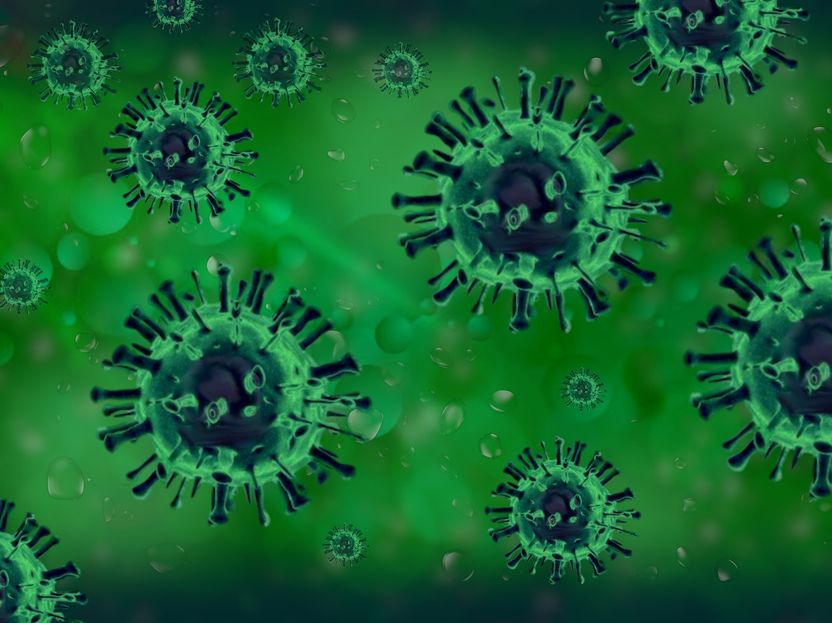The drug aprotinin inhibits entry of SARS-CoV2 in host cells
Aprotinin aerosol is already approved in Russia for the treatment of influenza
In order for the SARS-CoV2 virus to enter host cells, its “spike” protein has to be cleaved by the cell’s own enzymes - proteases. The protease inhibitor aprotinin can prevent cell infection, as scientists at Goethe University, the University of Kent and the Hannover Medical School have now discovered. An aprotinin aerosol is already approved in Russia for the treatment of influenza and could readily be tested for the treatment of Covid-19.

Symbolic image
Crissa, pixabay.com
The surface of the SARS-CoV-2 virus is studded with spike proteins. The virus needs these in order to dock onto proteins (ACE2 receptors) on the surface of the host cell. Before this docking is possible, parts of the spike protein have to be cleaved by the host cell’s enzymes – proteases.
In cell culture experiments with various cell types, the international scientific team led by Professor Jindrich Cinatl, Institute for Medical Virology at the University Hospital Frankfurt, Professor Martin Michaelis, and Dr Mark Wass (both University of Kent) demonstrated that the protease inhibitor aprotinin can inhibit virus replication by preventing SARS-CoV2 entry into host cells. Moreover, aprotinin appears to compensate for a SARS-CoV2-induced reduction of endogenous protease inhibitors in virus-infected cells.
Influenza viruses require host cell proteases for cell entry in a similar way as coronaviruses. Hence, an aprotinin aerosol is already approved in Russia for the treatment of influenza.
Professor Jindrich Cinatl said: “Our findings show that aprotinin is effective against SARS-CoV2 in concentrations that can be achieved in patients. In aprotinin we have a drug candidate for the treatment of COVID-19 that is already approved for other indications and could readily be tested in patients.”
Original publication
Denisa Bojkova, Marco Bechtel, Katie-May McLaughlin, Jake E. McGreig, Kevin Klann, Carla Bellinghausen, Gernot Rohde, Danny Jonigk, Peter Braubach, Sandra Ciesek, Christian Münch, Mark N. Wass, Martin Michaelis, Jindrich Cinatl jr.; "Aprotinin inhibits SARS-CoV-2 replication"; Cells; 2020
Most read news
Original publication
Denisa Bojkova, Marco Bechtel, Katie-May McLaughlin, Jake E. McGreig, Kevin Klann, Carla Bellinghausen, Gernot Rohde, Danny Jonigk, Peter Braubach, Sandra Ciesek, Christian Münch, Mark N. Wass, Martin Michaelis, Jindrich Cinatl jr.; "Aprotinin inhibits SARS-CoV-2 replication"; Cells; 2020
Organizations
Other news from the department science

Get the life science industry in your inbox
By submitting this form you agree that LUMITOS AG will send you the newsletter(s) selected above by email. Your data will not be passed on to third parties. Your data will be stored and processed in accordance with our data protection regulations. LUMITOS may contact you by email for the purpose of advertising or market and opinion surveys. You can revoke your consent at any time without giving reasons to LUMITOS AG, Ernst-Augustin-Str. 2, 12489 Berlin, Germany or by e-mail at revoke@lumitos.com with effect for the future. In addition, each email contains a link to unsubscribe from the corresponding newsletter.


















































